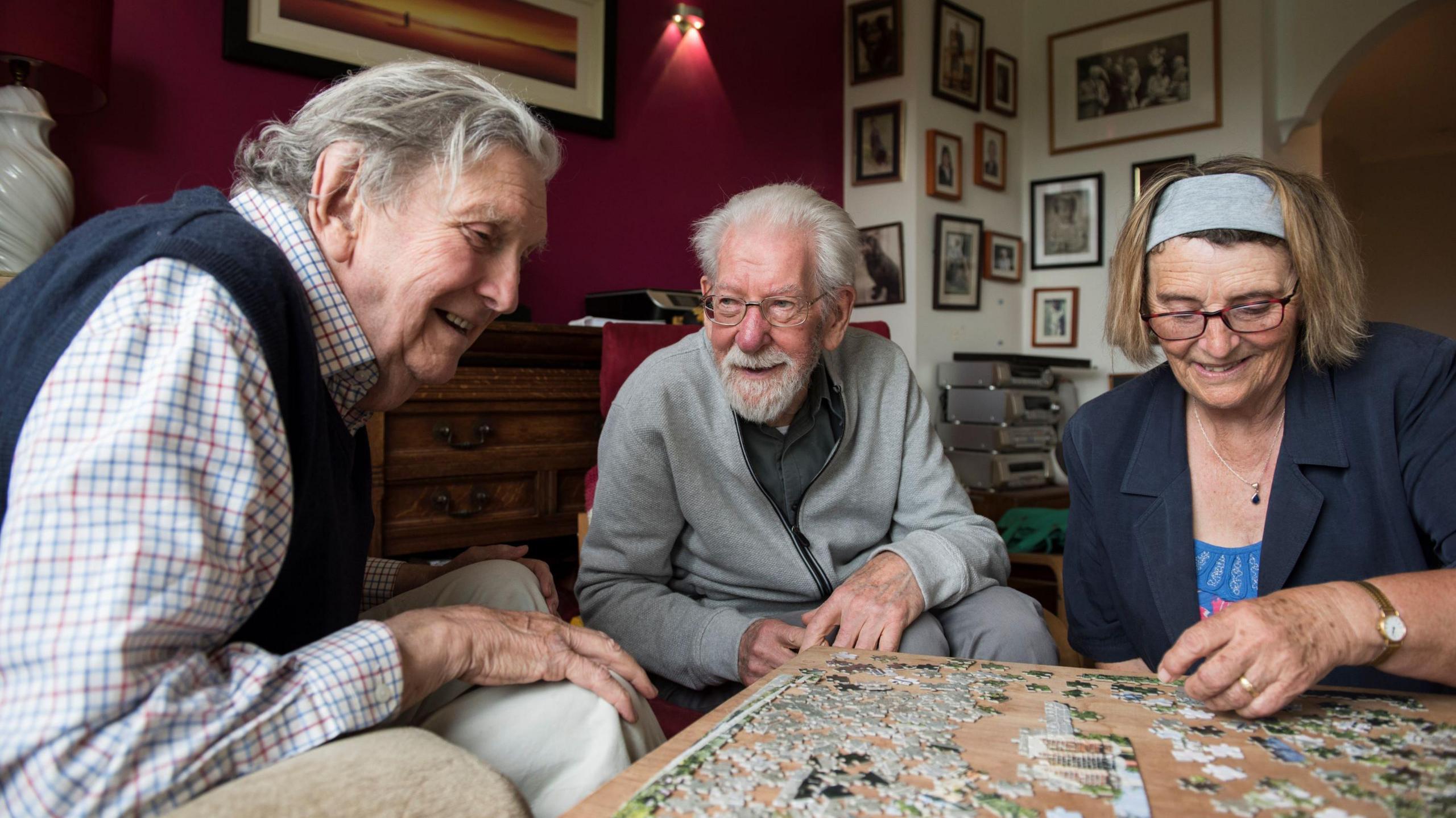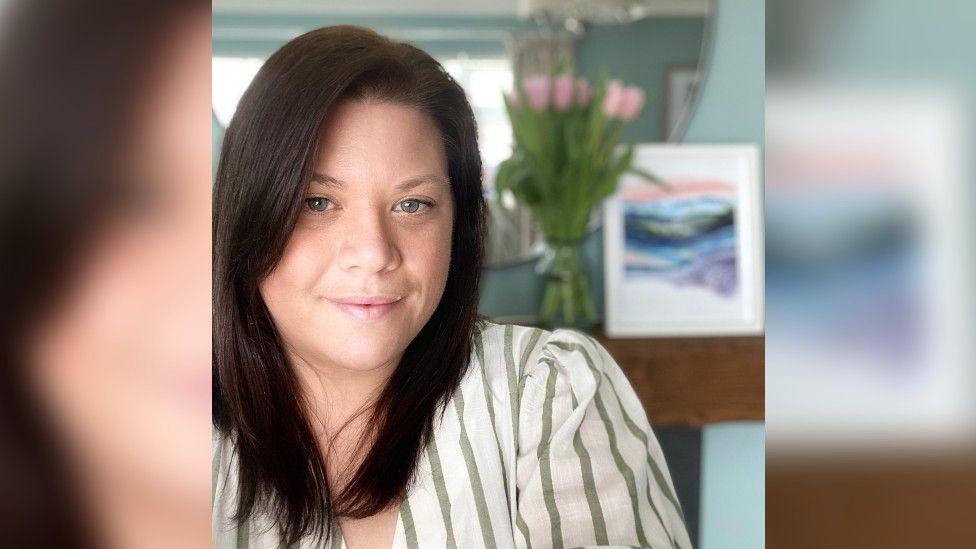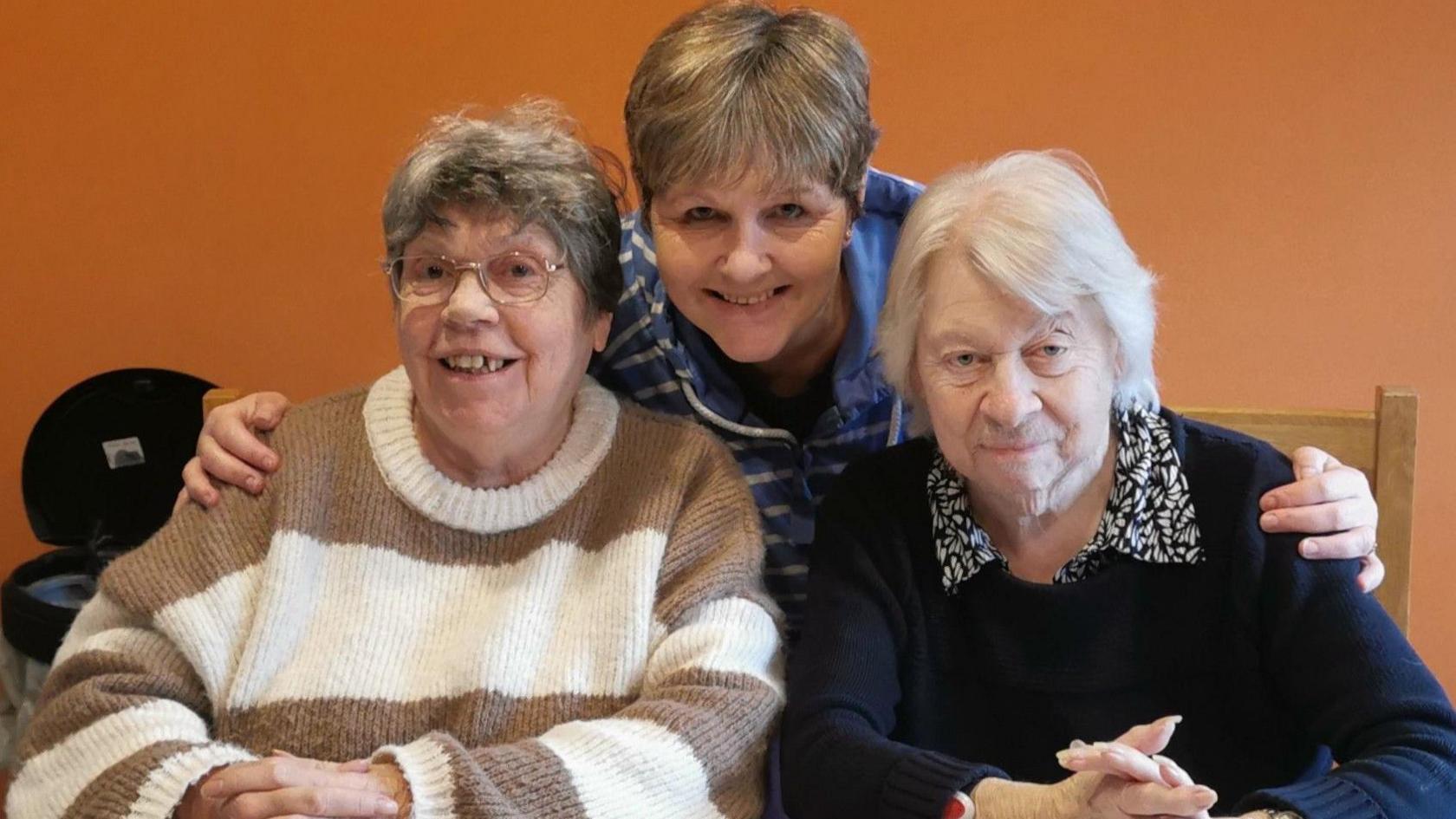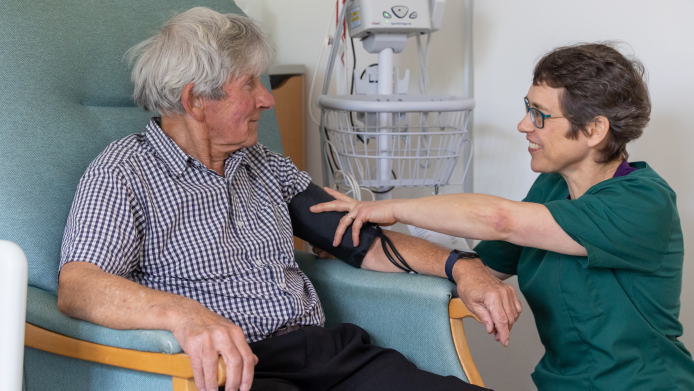Designer 'had to be part' of dementia project

The Filo Project gets dementia patients into people's homes for days out
- Published
A former graphic designer says she knew she "had to be part" of a project that helps people with dementia from the moment she heard about it.
Emma Bottomley welcomes people with early-to-moderate dementia into her Somerset home for day care every week as part of her new role as a host for the Filo Project.
Ms Bottomley, from Somerton, said the role was "very fulfilling" and brought "huge value" to those it helped.
The social enterprise is looking for more people to host up to four clients in weekly sessions in their homes.
Ms Bottomley said: "I host a group of three people with dementia in my home. We have wonderfully relaxed, creative days together.
"I often tailor my activities to suit something the group has spoken about before.
"I had a client mention he enjoyed the beach, with his family.
"So we bought the sunshine in, and had a day where we did sand therapy in the morning, which was a great hands-on, thought provoking experience, and then worked with sea-themed acrylics in the afternoon - focusing on the process and not the perfect outcome."

Emma Bottomley says she gets fulfilment from her new role
Jude Pinder, chief operating officer at the not-for-profit Filo Project, said having more hosts would increase the number of people the social enterprise could support, as well as giving users more consistency.
"They go to the same host on the same day every week - that helps people with dementia build up that routine and that knowing what's happening, but what really matters is that they get to form really good, strong, long-standing relationships with their hosts.
"That's really, really important to sort of help enrich the outcomes for people," she said.
The firm's hosts are paid day rates and work in their own homes. They receive training in food handling and health and safety, as well as in how to care for dementia patients.
It said anyone who applied to be a host needed to be available at the same time every week and have a home suitable for the sessions, and would get training.
Get in touch
Tell us which stories we should cover in Somerset
Follow BBC Somerset on Facebook, external and X, external. Send your story ideas to us on email or via WhatsApp on 0800 313 4630.
- Published9 March

- Published4 March
